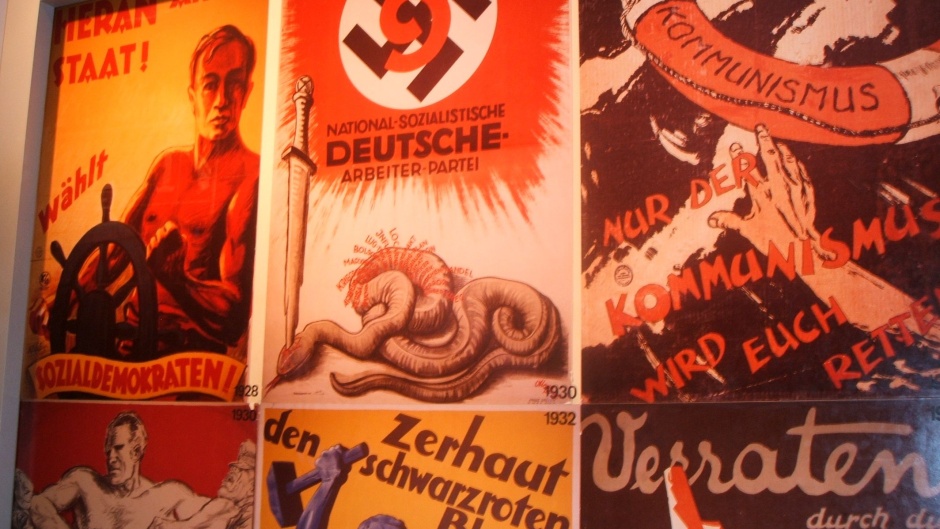The Thirties: How did it happen?
Society may be conditioned to support an approved narrative, but we are called to be men and women of truth.
27 JUNE 2024 · 08:51 CET

The tyrannical Nazi Reich toppled the German Republic in just fourteen years. It is historically fascinating to trace the transition. More than that, we must learn from history to avoid repeating it.
So, how did it happen?
There were all sorts of players involved. Lots of people had vested interests.
There was plenty of historical baggage everywhere you look. And complex political wranglings tugged at the emerging storyline.
It would take a long book to lay bare the complex reasons for the change. However, there are some pertinent points that a series of blog posts can consider to enlighten our thinking for our world today.
Albert C. Grzesinksi (ACG) repeatedly points to a critical underlying issue: a lack of willingness to resist. For example, he writes,
“Yes, it ought to be said again and again, that the iron will necessary to maintain the authority of the state, to guard jealously the inalienable rights of the people, and to fight in defense of democracy, was sadly lacking.” (p142)
When people were openly attempting to destroy democracy and bring in a dictatorship, there should have been a response from “energetic authorities” – but there was not.
Albert C. Grzesinksi repeatedly points to a critical underlying issue: a lack of willingness to resist
While the outside world was concerned about the “saber-rattling speeches” from the Nazis, “The republic, however, and its statesmen continued to view the manifestations of reaction and renewed militarism with unconcern.” (p145)“When Nazis took power, people had done nothing, but felt it was too late to take a stand.” So sad. And yet, it is so believable as we watch human nature in recent history.
In the early 1930s, they still had the numbers and the means to stop it, but the will to resist had already dissipated.
Once the Nazis were in power, the rules changed. They introduced a worker’s passport to control the labour force for government purposes.
People couldn’t change jobs without permission, which kept the masses from moving to the cities and away from the armaments factories. Tyranny, by definition, needs to impose control over individuals.
It would be unfair to say that the people merely turned away from reality. “Everything is prepared in the Third Reich by means of a thoroughly co-ordinated press and radio.” (p192)
There was massive propaganda pressure against the people. The most heinous example of this was the national pressure against Jews and the normalization of hatred against a class of people.
During 1936-37, 870 Jews were convicted of racial crimes, turning the screw even more. They could not receive protection because of the hostility of the police and the courts.
In our times, we are repeatedly seeing how quickly a society can be turned against a race, class or group of people (consider medical dissenters since 2021 or Jews in recent months, for just two examples). And sadly, the majority of people either do not see it or refuse to see it.
“The annexation of Austria was accompanied by all the horrible happenings known from 1933 when Nazism conquered power in Germany. At that time the world was unwilling to believe its own eyes and prepared to forget the horrors as quickly as possible.” (p336-7)
I wonder how often the combination of narrative control by the media and self-imposed blindness in key people leads to greater harm to the world.
I wonder how often the combination of narrative control by the media and self-imposed blindness in key people leads to greater harm to the world
I started ACG’s book expecting only to find hints of what was to follow during the Second World War, and especially the horrors of the holocaust. But the concentration camps, the numerous “suicides”, and the killing sprees were all already present and known in the thirties.Living in a world that is unwilling to believe its own eyes is scary!
Society may be conditioned to support an approved narrative, but we are called to be men and women of truth.
In the next post, I want to get to the heart of my concern: what was the church doing in the transition to Nazi rule? Does the church matter? Do our voices make a difference?
Peter Mead is mentor at Cor Deo and author of several books. He blogs at Biblical Preaching
Published in: Evangelical Focus - Biblical Preaching - The Thirties: How did it happen?
